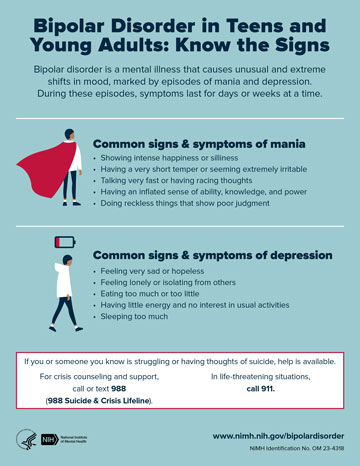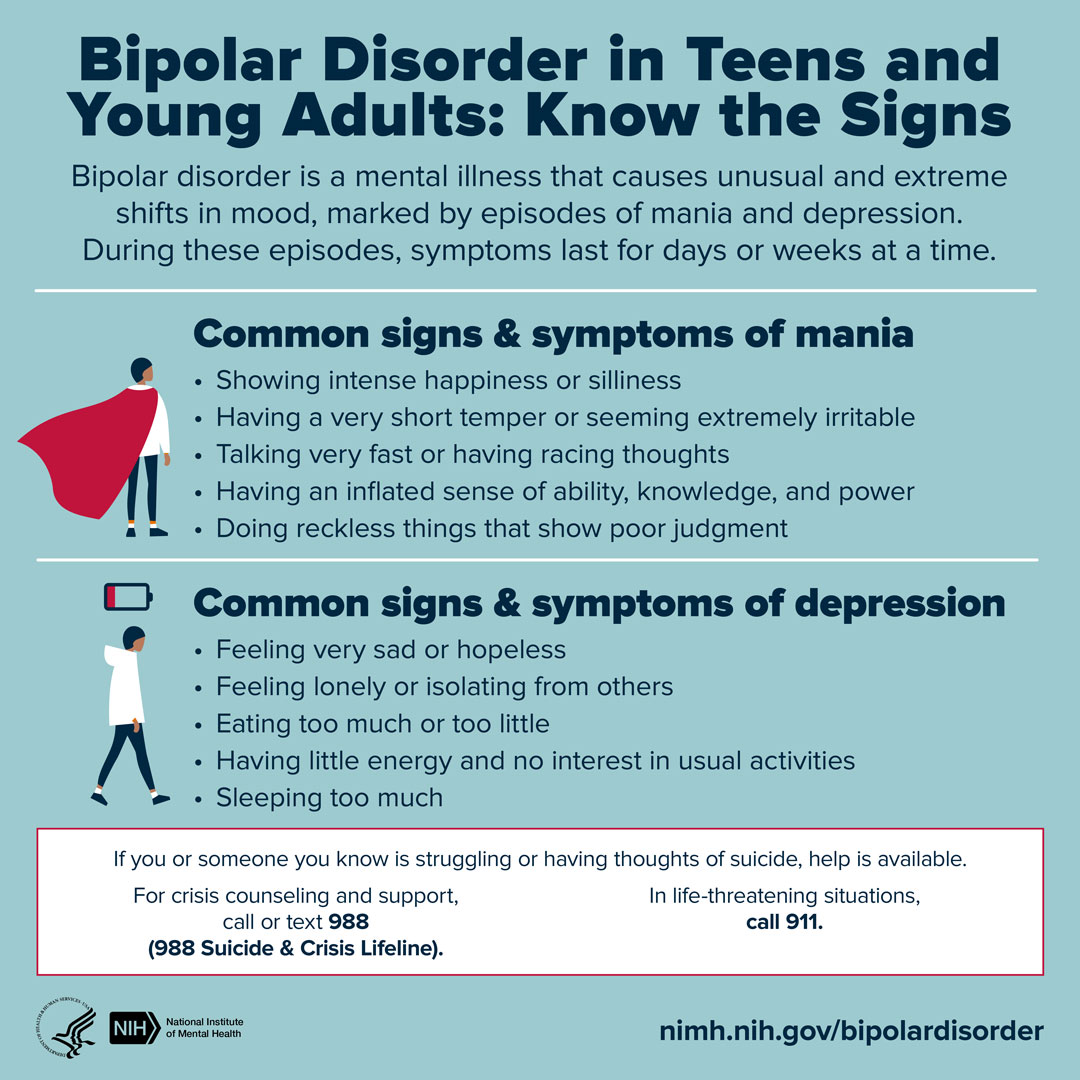Bipolar Disorder in Teens and Young Adults: Know the Signs
Bipolar disorder is a mental illness that causes unusual and extreme shifts in mood, marked by episodes of mania and depression. During these episodes, symptoms last for days or weeks at a time.
Common signs & symptoms of mania
- Showing intense happiness or silliness
- Having a very short temper or seeming extremely irritable
- Talking very fast or having racing thoughts
- Having an inflated sense of ability, knowledge, and power
- Doing reckless things that show poor judgment
Common signs & symptoms of depression
- Feeling very sad or hopeless
- Feeling lonely or isolating from others
- Eating too much or too little
- Having little energy and no interest in usual activities
- Sleeping too much
If you or someone you know is struggling or having thoughts of suicide, help is available. For crisis counseling and support, call or text 988 (988 Suicide & Crisis Lifeline ). In life-threatening situations, call 911.
Learn more about bipolar disorder.
U.S. DEPARTMENT OF HEALTH AND HUMAN SERVICES
National Institutes of Health
National Institute of Mental Health
NIMH Identification No. OM 23-4318
Share the Infographic on Social Media
Bipolar Disorder in Teens and Young Adults: Know the Signs
Disponible en español
Bipolar disorder is not the same as the typical ups and downs every kid goes through. The mood swings are more extreme and accompanied by changes in sleep, energy level, and the ability to think clearly. Know the signs and symptoms: https://go.usa.gov/xdezM #shareNIMH
Copy post to clipboard
Find more resources to share on social media.
Reprints
The information in this publication is in the public domain and may be reused or copied without permission. However, you may not reuse or copy images. Please cite the National Institute of Mental Health as the source. Read our copyright policy to learn more about our guidelines for reusing NIMH content.


